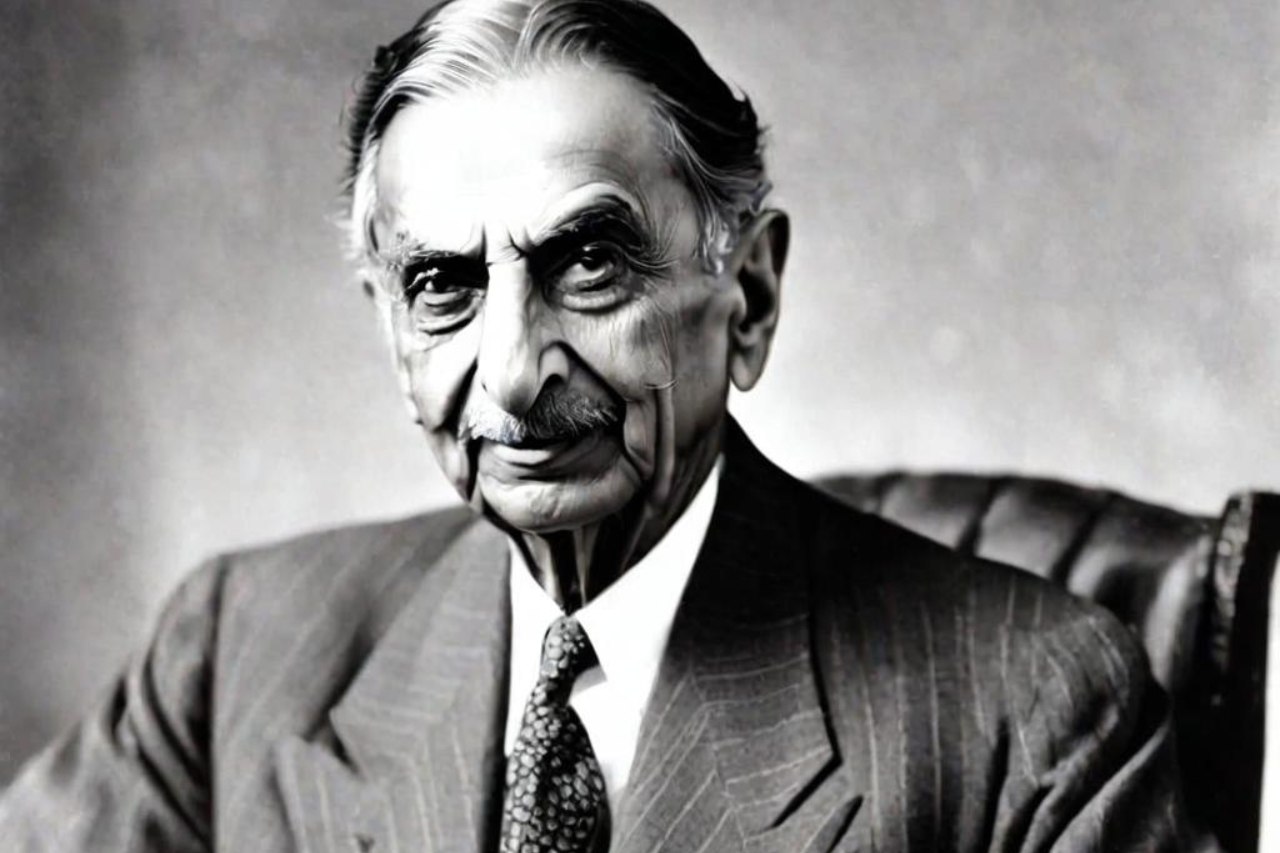JRD Tata LH (29 July 1904 – 29 November 1993) was a French-Indian Pilot, Industry mogul, Business person and executive of Tata Gathering.
He was the son of the well-known Indian businessman Ratanji Dadabhoy Tata and his wife Suzanne Brière. He was born into the Tata family. He is best known for starting several businesses that are now part of the Tata Group, such as Tata Consultancy Services, Tata Motors, Titan Industries, Tata Salt, Voltas, and Air India.
JRD Tata also founded Tata Consultancy Services. In 1983, he was granted the French Army of Honor and in 1955 and 1992, he got two of India’s most elevated regular citizen grants the Padma Vibhushan and the Bharat Ratna. These distinctions were offered to him for his commitments to Indian industry.
Early life of JRD Tata:
J. R. D. Tata was born in Paris, France, on July 29, 1904, to an Indian Parsi family. He was Ratanji Dadabhoy Tata’s second child with his French wife, Suzanne “Sooni” Brière. He had one older sister, Sylla, and one younger sister, Rodabeh.
He also had two younger brothers, Darab and Jamshed Tata, who were both referred to as Jimmy. Dinshaw Maneckji Petit, the third baronet of Petits, was Sylla’s husband. Rattanbai Petit, his sister-in-law, was the wife of Muhammad Ali Jinnah, who established Pakistan in August 1947.
Dina Jinnah, the daughter of Jinnah and Rattanbai, was married to Bombay Dyeing chairman Neville Wadia, whose father was Sir Ness Wadia and his mother was Lady Eveylne Clara Powell Wadia. Nusli Wadia and Diana N. Wadia were the names of Neville and Dina’s two children.
Jehangir and Ness Wadia were born to Nusli and Maureen Waida’s union. He spent much of his childhood in France because his mother was French; as a result, French was his first language. He went to Paris’s Janson De Sailly School. He used to be referred to as L’Egyptien by one of the teachers at that school.
He went to the House of prayer and John Connon School, Bombay. Tata received his education in India, London, Japan, and France. His father relocated the entire family to London when he joined the Tata company. During this time, J. R. D’s. mom passed on at 43 years old while his dad was in India and his family was in France.
Career:
At the point when JRD Tata was in visit, he was motivated by his companion’s dad, avionics pioneer Louis Blériot, the principal man to fly across the English Channel, and took to flying. Tata obtained India’s first license on February 10, 1929. JRD Tata earned the moniker “Father of Indian civil aviation” over time. In 1932, he established Tata Airlines, which later evolved into Air India, India’s current national airline.
He and Nevill Vintcent collaborated on Tata Airlines’ development. They were additionally old buddies. In 1929, JRD Tata became quite possibly the earliest Indian to be conceded a business’ permit. The predecessor to Tata Airline and Air India, Tata Aviation Service, took to the skies in 1932.
In the same year, he flew the first commercial mail flight to Juhu in a de Havilland Puss Moth. With J, the first flight of Indian aviation took off from Drigh in Karachi and traveled to Madras. R. D. on October 15, 1932, while he was in charge of a Puss. J. R. D. supported and sustained his carrier child through to 1953, when the public authority of Jawaharlal Nehru nationalized Air India. J made the decision. R. D. had fought valiantly against.
In 1925, he became an unpaid apprentice at Tata Sons. Tata became the head of India’s largest industrial group when he was elected Chairman of Tata Sons in 1938, at the age of 34. In 1945, he established Tata Engines. In 1948, Tata sent off Air India Global as India’s most memorable worldwide carrier.
In 1953, the Indian Government named Tata as Executive of Air India and a chief on the Leading body of Indian Carriers – a position he held for a very long time. For his highest accomplishments in flying, he was presented with the title of Privileged Air Commodore of India.

Backing of crisis powers in 1975:
JRD Tata also backed Prime Minister Indira Gandhi’s 1975 declaration of emergency powers, which caused controversy. He is cited to have told a correspondent of the Times, “things had gone excessively far.
Strikes, boycotts, and demonstrations—you can’t even begin to comprehend what we’ve gone through here. Why, there were days when I was unable to enter the streets from my home. Our requirements are not met by the parliamentary system.
Grants and praises:
JRD Tata was honored with numerous accolades. In 1948, the Indian Air Force bestowed upon him the honorary rank of group captain. On October 4, 1966, he was elevated to the Air Commodore rank, which is equivalent to the army rank of Brigadier, and on April 1, 1974, he was elevated to the Air Vice Marshal rank.
A few worldwide honors for flight were given to him – the Tony Jannus Grant in Walk 1979, the Gold Air Decoration of the Fédération Aéronautique Internationale in 1985, the Edward Warner Grant of the Global Common Flying Association, Canada in 1986 and the Daniel Guggenheim Award in 1988. He got the Padma Vibhushan in 1955. He received the French Legion of Honour in 1983.
In 1992, in view of his magnanimous philanthropic undertakings, JRD Tata was granted India’s most elevated regular citizen honor, the Bharat Ratna. In his memory, the Public authority of Maharashtra named its most memorable two layer span the Bharatratna JRD Tata Overbridge at Nasik Phata, Pimpri Chinchwad.
Demise and heritage:
Tata passed away on November 29, 1993, at the age of 89, from a kidney infection in Geneva, Switzerland.
By DNC:
